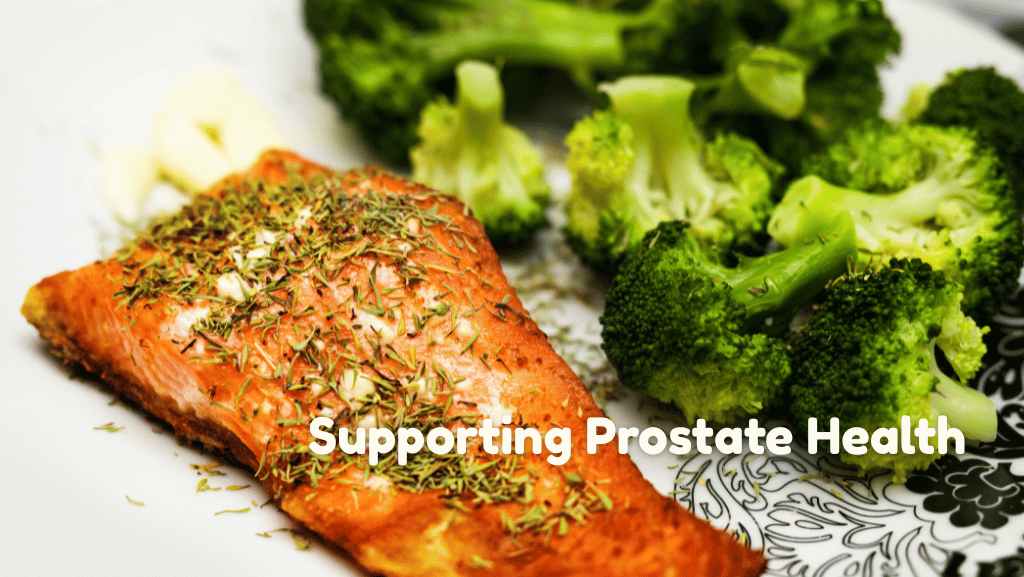Taking care of prostate health is an important part of maintaining overall well-being for many men as they age. Simple changes in diet may play a helpful role in supporting the prostate and promoting urinary comfort.
In addition to certain foods, many individuals enhance their routine by incorporating bioavailable prostate health supplements, which are specially formulated for better absorption. These choices can easily fit into daily habits to help men feel their best.
-
Tomatoes, rich in lycopene
Tomatoes are a good source of lycopene, which is an antioxidant. Lycopene is what gives tomatoes their red color.
Studies suggest that eating foods with lycopene may support prostate health. Cooked tomatoes—like those in sauces or soups—might be a better choice for getting more lycopene because the body can absorb it more easily from cooked products.
Tomatoes can be added to salads, pastas, or eaten as juice. Many people enjoy them roasted or sautéed. Making these foods a regular part of the diet can help increase lycopene intake.
In addition to lycopene, tomatoes have vitamin C and other nutrients. Eating tomatoes as part of a balanced diet can be a simple step toward supporting overall wellness.
-
Broccoli and other cruciferous vegetables
Broccoli is a common vegetable that may benefit the prostate. This green vegetable contains natural substances called phytochemicals. These compounds are believed to help support normal prostate function.
Other vegetables in the same group include cauliflower, cabbage, kale, and Brussels sprouts. These are known as cruciferous vegetables. Eating a good mix of them gives the body helpful nutrients and fiber.
Cruciferous vegetables provide fiber, vitamin C, and other nutrients. Fiber supports digestion and may support weight control. Many people also find them easy to add to salads, stir-fries, and side dishes.
Some studies suggest that eating cruciferous vegetables often may lower the risk of prostate problems. These foods are widely available in grocery stores and can be cooked in many ways. For those looking to support their prostate, including these vegetables in the diet is a simple step.
-
Fatty fish like salmon and mackerel
Fatty fish such as salmon and mackerel contain healthy omega-3 fatty acids. These nutrients are known to support different areas of wellness, including prostate function. Eating these types of fish may help reduce inflammation in the body.
Omega-3 fatty acids support the cells in the body. Research suggests that eating fish with omega-3s may be linked to better health in older adults.
Preparing fish by baking or grilling can keep the meal low in unhealthy fats. Experts recommend including fatty fish in the diet about two times a week.
Besides being a source of protein, these fish are also low in saturated fat. Adding salmon or mackerel to the diet is an easy way to get more omega-3. They can be included in salads, sandwiches, or main dishes for added variety.
-
Green tea
Green tea has been enjoyed for centuries as a daily drink in many cultures. It is known for having natural antioxidants called catechins. These plant compounds help protect cells from damage.
Some research suggests that green tea may support prostate health. It is thought that the antioxidants in green tea can lower inflammation in the body. This could be helpful for prostate health over time.
Drinking green tea may also offer other benefits. Some people find it helps them stay hydrated and provides a mild boost in energy without too much caffeine.
Green tea is easy to prepare. It can be made at home using tea bags or loose leaves and hot water. For those who want to add green tea to their diet, starting with one or two cups a day is a simple choice.
-
Pumpkin seeds
Pumpkin seeds are a simple snack that can be eaten on their own or added to other foods. They contain healthy fats, antioxidants, and zinc, which are all important for the body. A small serving every day can fit easily into most diets.
Zinc in pumpkin seeds supports the natural functions of the prostate. Studies suggest zinc may help keep the prostate healthy over time. One cup of pumpkin seeds has almost half the recommended daily amount of zinc.
Pumpkin seeds have phytosterols, which are plant compounds that may help with common prostate problems. These compounds might help reduce symptoms of an enlarged prostate. The oil in pumpkin seeds is also believed to play a role in this effect.
Many people find pumpkin seeds easy to include in smoothies, salads, or oatmeal. Eating about 5 grams daily has been suggested by some sources. It is always best to talk to a doctor before making any big changes to diet.
Conclusion
Eating a variety of foods can help support prostate health. Foods like tomatoes, berries, broccoli, fatty fish, and green tea can be part of a balanced diet.
Simple changes, such as adding more fruits and vegetables, can make a difference. These choices offer nutrients that the body needs each day.
Focusing on these foods may help people care for their prostate as they age. Small steps can go a long way when taken consistently.




